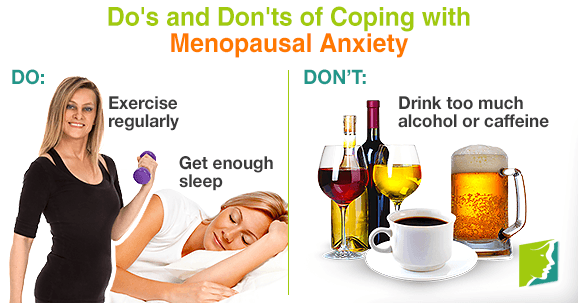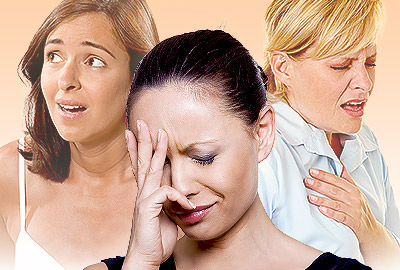In the years leading up to menopause, many women report mood swings and anxiety. Anxiety, defined as a feeling of unease, such as worry or fear, is natural when faced with a scary or unfamiliar situation. In most people, the feeling subsides after the distressing event passes, and daily life is not affected. In some people, however, this can become a more chronic condition. Keep reading for more information about anxiety attacks and how to recognize them.
What Are the Causes of Anxiety?
There are many reasons that people are affected by this condition, with one of them being menopause. The exact reasons that menopausal women are affected is unclear, although the most probable reasons are a combination of hormonal fluctuations and menopausal symptoms.
Estrogen deficiency
Hormones tend to fluctuate significantly while a woman is in the perimenopausal stage. A significant estrogen decrease can make a woman more vulnerable to developing anxiety disorders.
Other menopausal symptoms
Research has shown that common symptoms of the menopausal stage -- such as hot flashes, sleep problems, and fatigue - can affect mood and well-being, which can sometimes lead to low feelings and anxiety.
Feeling negative about getting older
Fears for the future, negative stereotypes about menopause, and suffering from unpleasant symptoms can all cause stress for a menopausal woman, leading to anxious feelings.
What Are the Symptoms of Anxiety?
There are a myriad of psychological, physiological, and social symptoms associated with this condition, a few of which are:
- Chronic feeling of unease
- Irritability
- Inability to concentrate
- Irregular heartbeat
- Headaches
Keep reading for practical advice on dealing with anxiety and its symptoms.
Do:
Exercise regularly
Exercise releases serotonin and endorphins, neurotransmitters that have both been shown to relieve anxiety.
Get enough sleep
Lack of sleep can cause you to think irrationally, adding unnecessary stress to the anxiety you already have.
Take herbal remedies
Although consulting a medical profession before beginning any sort of medication is recommended, there are some herbs that have been shown to reduce anxiety - in particular, St. John's wort (Hypericum perforatum) and valerian (Valeriana officinalis).
Don't:
Drink too much alcohol or caffeine
Alcohol is a depressant, which, in the long term, it will typically intensify anxious feelings. Caffeine will also be unhelpful, as after the initial energy boost comes a crash. Therefore, drinking too much of these substances can have a negative effect on mental health.
Suffer in silence
Talking about your problems is a therapeutic act, and there are many types of talking therapies, such as counseling and behavioral therapies that are available for you. Although talking to a doctor is of course recommended, since this could be the first step towards appropriate treatment, even talking to a friend or family member will reduce the feelings of isolation.
Menopausal anxiety is distressing and can be disrupting to daily life, but following these tips should lessen the symptoms and lead to a happier menopause.
Sources
- Anxiety and Depression Association of America. (n.d.). Tips to Manage Stress and Anxiety. Retrieved July 17, 2014, from http://www.adaa.org/tips-manage-anxiety-and-stress
- Harvard Gazette. (2012). Estrogen and female anxiety. Retrieved July 17, 2014, from http://news.harvard.edu/gazette/story/2012/08/estrogen-and-female-anxiety/
- National Health Service UK. (2014). The types of therapy - Stress, anxiety and depression. Retrieved July 17, 2014, from http://www.nhs.uk/Conditions/stress-anxiety-depression/Pages/types-of-therapy.aspx
- National Health Service UK. (2013). Why do I feel anxious and panicky? - Stress, anxiety and depression. Retrieved July 17, 2014, from http://www.nhs.uk/Conditions/stress-anxiety-depression/Pages/understanding-panic.aspx
- National Institute of Mental Health. (n.d.). Anxiety Disorders. Retrieved July 17, 2014, from http://www.nimh.nih.gov/health/publications/anxiety-disorders/index.shtml?wvsessionid=wv650bd43245ce405884dd789794894544#pub2
- Office on Women's Health. (2010). Menopause and mental health. Retrieved July 17, 2014, from http://www.womenshealth.gov/menopause/menopause-mental-health/




